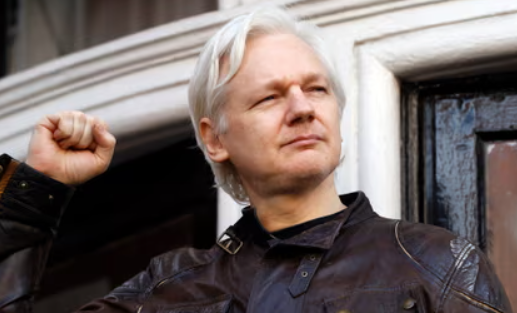Who is Julian Assange?
Julian Assange, the founder of WikiLeaks and an Australian national, was released from a UK prison on June 24, following a bail order from the London High Court. His release was announced on the platform Twitter proclaiming “JULIAN ASSANGE IS FREE.” This release is very important because it comes after long court battles and tensions with governments around the world, especially with the US.
His Deal with the US
Reports say that Julian Assange has reached a deal with the U.S. Department of Justice under which he will admit guilt to a single criminal count of obtaining and disclosing classified information without permission. As a reward, he won’t have to spend any more prison time on top of the five years he already has, which is longer than most people get for similar crimes.
Background: Who is Julian Assange and What is WikiLeaks?
Julian Assange, a 52-year-old Australian, founded WikiLeaks in 2006. The website is known for disclosing confidential government and corporate documents to promote transparency. WikiLeaks shot to international prominence after releasing classified U.S. documents, including detailed accounts of the U.S. military’s actions in conflicts in Afghanistan and Iraq, which suggested civilian casualties were higher than reported. This exposure included the publishing of U.S. diplomatic cables in 2010, which strained U.S. relations with other countries.
US Government’s Response to WikiLeaks
Assange was charged by the U.S. government with 18 counts in 2019 for breaking the Espionage Act and the Computer Fraud and Abuse Act because of these leaks. These charges said he put U.S. officials in danger and worked with Chelsea Manning, a former U.S. Army intelligence analyst who leaked papers to WikiLeaks.
Legal Challenges and the Extradition Battle
Assange faced legal problems after his part in the leaks, including sexual attack claims in Sweden. He said these were just attempts to get him extradited to the U.S. Assange sought refuge at the Ecuadorian Embassy in London in 2012 because he was afraid of being extradited. He stayed there until his asylum was taken away in 2019, which led to his arrest. After that, the U.S. tried to extradite Assange but faced major legal challenges. There was also a lot of public and legal debate about the conditions he might face in the U.S., such as possible abuse of his human rights.
Implications of Assange’s Release and Trial Plans
After being freed, Assange will be tried on the island of Saipan in the Northern Mariana Islands. This may be because he doesn’t want to be sent back to the U.S. mainland for trial. The long legal battles should stop with his trial and plea deal, but they are still causing debates about human rights, freedom of the press, and national security.
Month: Current Affairs - June, 2024
Category: Awards, Honours & Persons in News






